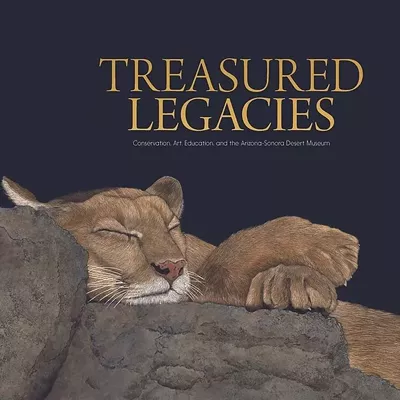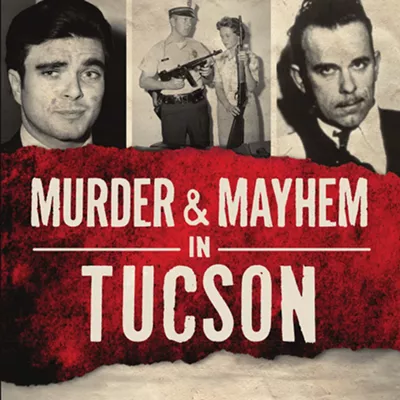THE HIGHLY PERSONAL -- indeed, confessional -- My War Gone By, I Miss It So is a gruesome, gritty account of the war of "ethnic cleansing" in Bosnia. On its first publication in Britain, reviewers immediately ranked it among the classics in the time-honored genre of war narrative. It's a compelling book, engaging and stylistically both elegant and accessible. Much of the descriptive detail is stunningly realized, and the anecdotes are often shrewd and revealing. But in spite of these virtues, it lacks the permanent appeal of a classic.
Despite his courage, initiative, and candor -- or perhaps because of them -- author Anthony Loyd is limited as a journalist and unreliable as an interpreter. Loyd's personality and motivation are the true theme and subject of My War, and its most original, not to say peculiar, elements.
Loyd went to the killing fields of Bosnia for kicks. Reared on stories told him by his mother and grandmother of his ancestors' astonishing military exploits, and entertained as a youth by gifts of toy soldiers, Loyd wanted always to be not a soldier but a warrior. "Inevitably," he says, "I was in love with the idea of war without even knowing what it was." A failure in school, he wangled a billet as a junior officer in the peacetime British army; disappointed, he re-enlisted only when the Persian Gulf War promised a chance to fight. As he was an infantryman, that hope was dashed by Iraq's quick defeat from the air.
Once mustered out, Loyd found himself at loose ends in West London, idling with a group of louche friends whose main bond was freebasing heroin. Smack was the only relief he could find from inactivity and suicidal depression. When all hell broke loose in the former Yugoslavia, he seized upon the carnage as a life-saving opportunity. A quick night course taught him the rudiments of photojournalism. Casual lessons from an émigré gave him a few phrases of Serbo-Croatian. Within months he was on his own under bombardment in Sarajevo, unaccredited to any news agency, but obsessively seeking "the buzz" he found at the point of greatest danger and violence.
In a nutshell, then, My War's theme is that war is a rush and that Anthony Loyd craves a rush. He was so bored during occasional recuperation periods in London that he developed a first-class heroin addiction, relieved only by return to the front. A year after the Dayton Accords he was back in Bosnia wandering among the bones at mass burial sites, lamenting the horrors, but regretting excitement's end even more.
Loyd's approach to war journalism was consequently dire. He scarcely noticed the diplomatic or historical aspects of the conflict, and offers instead only superficial comments. He is contemptuous of journalists who attended briefings or interviewed political figures and military brass. He tilted toward the Bosnian Muslims, since their bloody passions were excited primarily by personal, reactive causes, unlike the more ideological, nationalistic motivations of equally bloody-handed Croats and Serbs. He is critical of indecisive involvement by the UN and the Western powers, and rues the fact that he couldn't effectively communicate "that I felt something was at stake in Bosnia."
Regardless, his peak admiration is reserved for anyone of any persuasion who is personally vitalized by the experience, a preference which inevitably -- and repeatedly -- throws him into the dangerous company of mercenaries and warlords. Taking sides remains a distant second to his unapologetic embrace of the heart-pounding thrill he finds in warfare: "I was not unhappy. Quite the opposite. I was delighted with most of what the war brought me: chicks, kicks, cash, and chaos; teenage punk dreams turned real and wreathed in gunsmoke."
The virtue of Loyd's jaunty approach is the intensity of the fragmentary dramas he sketches -- his own, and those of the people and situations he encounters. His front line reports dwell graphically on discrete incidents, isolated fears and individual wounds. Fat old women pulling between them a child's wagon loaded with potatoes venture across a sniper-covered town square; they take fire, but uninjured they trudge on, expletives streaming from their lips. From one severe head injury an intact human brain falls out into a village street to shock a gathering crowd; a starving cat dashes out to feast. Three brutally beaten prisoners are sent stumbling back to their own lines, remote-controlled land mines lashed to their chests. Terrible accounts of rape, torture and mutilation pile up. Once caught in a pell mell retreat, running across an open field under barrage from a leveled anti-aircraft gun, Loyd contemplates suicide rather than capture: "Castrated men tired of sucking on their amputated dicks or clutching at their flayed skin with fingerless hands."
With such grim particularities, Loyd evokes a ghoulish fascination, perhaps the armchair version of "the buzz" he was mainlining. Loyd's sensationalism is not simplistic, nor is it sentimental; to the contrary, the intensity of his appreciation depends upon his keen susceptibility to risk, pain and fear, his own and that of others. He disavows any personal basis to judge good from evil, but writes, "I am certain that what I witnessed at times in Vares was more than mere wrongdoing." In the event, this is such an appalling understatement one can only hope it is intended ironically.
Loyd tries half-heartedly to make the case that his war lust is universal, and that to deny it is "trite hypocrisy." All who go voluntarily into a war zone, in whatever humanitarian or reportorial role, "want the same thing, a hit off the action, a walk on the dark side. It's just a question of how slick a cover you give yourself, and how far you want to go."
If one accepts this even for the sake of argument, it becomes a great riddle why Loyd has chosen to disperse periodically among his battle tales long italicized chapters with titles like "Ghosts" and "Gods." Written in a poetic style that contrasts with the bulk of the book, these interludes reveal personal and family history unrelated to the war. They can only be understood as Loyd's effort to provide himself some cover. It is thin cover at best, a veneer of utterly unconvincing excuses for behaviors he admits with a paradoxical pride are addictive, dangerous and abnormal. He blames his broken home, his rigid boarding school, his uncommunicative father, his wicked stepmother, a natural impulse to youthful experimentation, a colorless army bureaucracy, and the sly blandishments of drug dealers. The connections are not clearly explained -- it seems unlikely that Loyd has really thought them through -- but it is hard not to believe that Loyd often confuses cause with effect.
Over the long haul, this matters. Warfare is almost uniquely human, and perhaps it is characteristic. It is no accident that many of literature's enduring monuments are annals of war, and it is not in the least surprising that many "classics" of the bloody 20th century are preoccupied with all things martial.
My War stakes its claim not as historical or political reportage, but as literature, quite self-consciously aware of its canonical predecessors. Loyd cites as his initial inspiration Michael Herr's Dispatches, one of the truly re-readable works among the great mass of Vietnam memoirs. A passage on good luck charms is unmistakable homage to Tim O'Brien's The Things They Carried. Loyd mentions John LeCarré and Graham Greene in passing, and his scenes of sieges in Sarajevo, Stara Bila and Velika Kladusa echo the reckless intimacy of dispatches sent from the Battle of Madrid in 1936-37 by Hemingway, whose fatalistic machismo Loyd specifically invokes. Unfortunately less familiar to most contemporary readers, John Reed's War in Eastern Europe and his Ten Days That Shook the World are appropriate presiding literary ghosts for this new Balkan book, written at the century's other end.
These are all worthy influences, but the heady company Loyd has chosen lays bare his limitations. The problem is not Loyd's egoistic self-absorption. T.E. Lawrence's Seven Pillars of Wisdom, arguably the greatest of modern war narratives, is a veritable tombstone of self-absorption. Unlike Loyd, Lawrence had, in addition to a broader view, sufficient intelligence and insight into humanity generally neither to like nor excuse himself; each time he caught himself enjoying "the buzz" of his war, he was ashamed. Loyd's failure of perspective is shouted by the wonderful title of My War Gone By, I Miss It So; intriguing as they are, the truths he reveals about himself are inexcusable -- something he doesn't understand.






